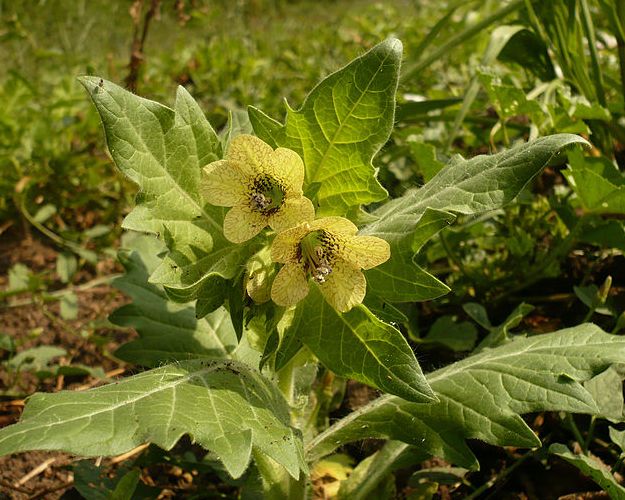settings
Hamlet vocabulary
4 drugs or drug ingredient vocabulary words
help & settings
[x]
-
hebenon
-
► definition
Definition:many have speculated that Shakespeare is referring to henbane or hemlock, but pouring a tincture of either plant in someone's ear would probably just annoy them, not kill them.It's poetic license—Shakespeare likely fabricated the word; but in reality it does not much matter specifically what plant was used, just a strong one that quickly kills. And why would so many obsess over this anyway? Do they want to insure that when they stage the play they use exactly the same poison, just for the sake of accuracy?But for those who want to debate further...---It has always been a matter of individual speculation and dispute as to the juice of what plant Shakespeare alludes to here as the “cursed hebenon”. The meaning of the word hebenon is ebony-coloured, or black, so that it might apply to any dark liquid. Most writers and commentators seem to be of opinion that henbane is alluded to, but judging from the rapid effect of the liquid, it would appear that some more powerful poison is intended. The juice of henbane is not a powerful poison, and it is but a feeble narcotic whose effects are mainly sedative and soothing. It acts also as a neurotic, affecting the brain and producing delirium. It will be seen that there is little similitude between the actual effect of henbane and that of the poison described by the poet. Others think it more probable that hemlock, an ancient poison of the Greeks, is intended. Its action is much more rapid and powerful, the spinal cord being chiefly affected, and paralysis caused, ending in death. The drug is a powerful narcotic and anodyne, and is also a paralysant. It was well known to the apothecaries of Shakespeare’s day, its poisonous properties having been observed from very early times. It should be taken into account, that as a matter of fact the pouring of any poisonous liquid of vegetable origin into the ear would have little or no immediate effect; and unless the tympanum had been ruptured it would be almost impossible for it to be absorbed into the system and at once prove fatal.C.J.S. Thompson. The Mystery and Romance of Alchemy and Pharmacy (1887) photo: of henbane by Лобачев Владимир under the Creative Commons Attribution-Share Alike 3.0 Unported license.
photo: of henbane by Лобачев Владимир under the Creative Commons Attribution-Share Alike 3.0 Unported license.
► uses
Uses:
Upon my secure hour thy uncle stole, With juice of cursed hebenon in a vial, And in the porches of my ears did pour The leperous distilment; whose effect Holds such an enmity with blood of man That, swift as quicksilver, it courses through The natural gates and alleys of the body;
William Shakespeare. Hamlet

